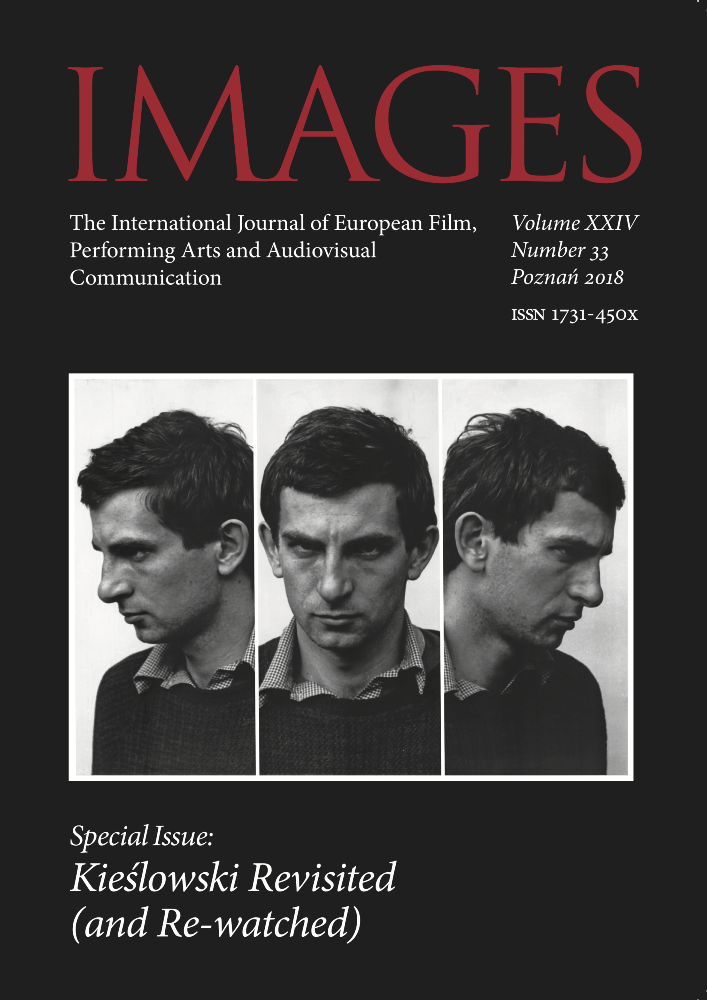Abstrakt
The aim of the analysis is to present the film (Late Afternoon) by Gilles Renard as a study of melancholy. Both the plot and the cinematographic means used to shape the form of this short film correspond with the theoretical texts by Julia Kristeva and Melanie Klein on depression in women. The author of the text considers Late Afternoon as a feminist and affirmative film, strongly inspired by the aesthetics of Krzysztof Kieślowski’s cinematic output.
Bibliografia
Bloom H., Lęk przed wpływem, trans. A. Bielik-Robson, Kraków 2002
Christensen W., Torches of Freedom: Women and Smoking Propaganda, https://thesocietypages.org/socimages/2012/02/27/torches-of-freedom-women-and-smoking-propaganda (accessed: September 10, 2018)
Cixous H., “Śmiech meduzy”, trans. A. Nasiłowska, “Teksty drugie” 1993, no. 4/5/6 (22/23/24)
Kitliński T., Obcy jest w nas. Kochać według Julii Kristevej, Kraków 2001
Klein M., “Żałoba i jej związek ze stanami maniakalno-depresyjnymi”, trans. A. Czownicka, [in:] Depresja. Ujęcie psychoanalityczne, eds. K. Walewska, J. Pawlik, Warszawa 1992
Kristeva J., Czarne słońce. Depresja i melancholia, trans. M.P. Markowski, R. Ryziński, Kraków 2007
Kulig A., “Barwy samotności w tryptyku Krzysztofa Kieślowskiego Trzy kolory – Niebieski, Biały, Czerwony”, “Kwartalnik Filmowy” 1998, no. 24
Mulvey L., Visual and Other Pleasures, London 1989
Licencja

Utwór dostępny jest na licencji Creative Commons Uznanie autorstwa – Użycie niekomercyjne – Bez utworów zależnych 4.0 Międzynarodowe.
